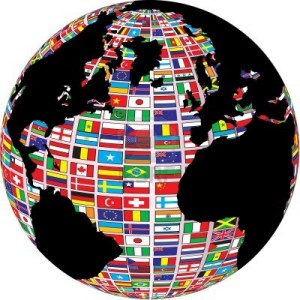David Cleveland (2000) argues that “Globalization is a result of biophysical as well as geopolitical processes, and it is more useful to see it as the latest phase of a process that began 12,000-13,000 years ago with the origins of agriculture, rather than viewing the current era as an abrupt disjunct in human-environmental history.”

Cleveland, D. (2000). Globalization and anthropology: Expanding the options. Human Organization, 59(3), 370-374.
- David Cleveland argues that agriculture drastically changed the nature of interactions between humans and the environment, and became a central factor in the creation of cities and systems of political hegemony. He further notes that understanding the social and cultural basis for the construction of knowledge is just as important as understanding the biophysical basis of that knowledge, insisting a need for a combination of humanistic and scientific approaches to applied anthropology. An important notion Cleveland puts forth is to be wary of the words “sustainability” and it’s components like “conservation” and economic “rationality” as these are simply statements of goals without being subjectively defined to a specific group or individual. In my opinion, this is a very important idea to consider when thinking about the negative impacts of globalization and how to mediate them through living more sustainably. In the literature, there is a seemingly constant reminder to look at the each community or individual in a strictly contextual way, making sure to differentiate between knowledge that is objective vs. subjective. Many small scale farmers, those heavily effected by globalization, will make use of any and all possibilities of globalization to improve their situation Cleveland argues. This contradicts several pieces of literature of indigenous knowledge systems, in which many anthropologists claim that IKS won’t be modified unless there is a forced adaptation within the community. When examining the powers of globalization in the context of indigenous knowledge systems, I believe both arguments can be true. I believe that small scale farmers and communities will only make use of some opportunities lended by globalization, in order to maintain their social and cultural cohesion. Finally, incorporating both local and global contexts can increase the epistemological range that modern science and technology can lend to local farmers and vice versa, the holistic and intimate knowledge of environments that locals lend to scientists
*See abstract file cabinet for article: Friction: An Ethnography of Global Connection Anna Lowenhaupt Tsing Anna Lowenhaupt Tsing.